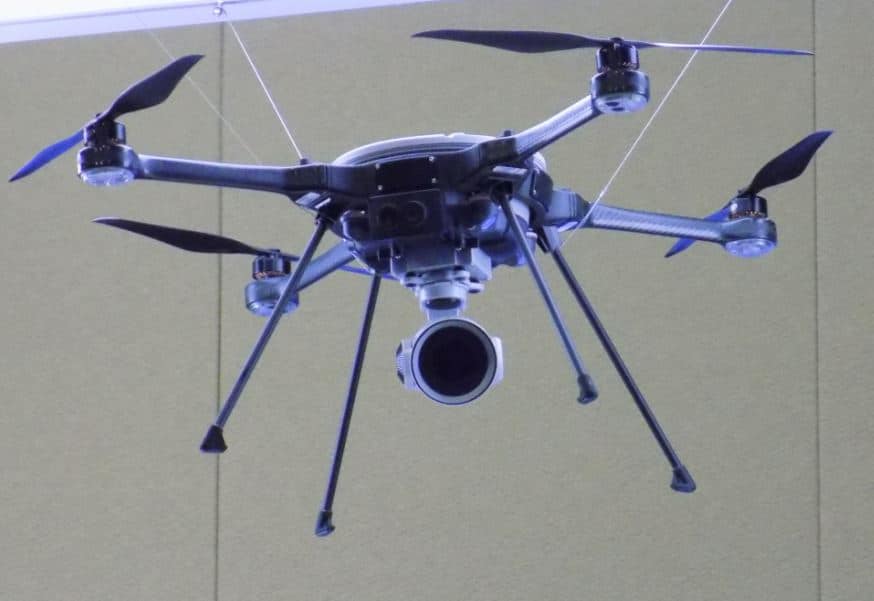Attorney General Says Justice Department Can Shoot Down ‘Threatening’ Drones

WASHINGTON – The U.S. attorney general issued a guidance this week that authorizes the FBI, Drug Enforcement Agency, Bureau of Prisons and other Justice Department agencies to intercept communications from threatening drones or destroy them without prior consent.
The policy is intended in part to prevent drone flights into “no drone zones” designated by the Federal Aviation Administration. Most often they are areas near airports, military bases and government buildings.
The FAA put many of the no-fly zones for drones in place after the 9/11 attacks. Violators face stiff fines and potential criminal penalties.
Although one definition of “threatening” under the guidelines refers to drones that trespass, others could be intercepted if they eavesdrop on private citizens.
The Justice Department guidance is raising alarms by industry groups that rely on drones as their workhorses.
The more than 1.5 million drones registered with the FAA are increasingly used for package deliveries, views of real estate and aerial news reporting.
Online retailer Amazon.com is leading the movement toward wider use of commercial drones. Last month, the company announced it hired former Boeing executive David Carbon to lead its drone delivery service.
“We’re very excited David Carbon joined Amazon to lead the next phase of our mission to bring 30-minute delivery by drones to customers,” Amazon said in a statement.
U.S. Attorney General William Barr said his guidelines “will ensure that we are positioned for the future to address this new threat, and that we approach our counter-drone efforts responsibly, with full respect for the Constitution, privacy and the safety of the national airspace.”
He added that the Justice Department agencies should be “sensitive” to “legitimate activity” of drones before taking action against them.
The FAA has certified about 160,000 remote pilots nationwide.
As complaints about near-misses with aircraft increased, Congress authorized the Justice and Homeland Security departments in 2018 to disable or destroy trespassing drones.
Other concerns came from U.S. military officials. They said drones could carry weapons or be equipped with spy cameras.
So far, the U.S. military leads the world with drone warfare, particularly in Afghanistan and Syria. Other countries are catching up in drone development.
The attorney general’s guidance instructs law enforcement agencies to consult with the FAA to make a risk-based assessment of drone activity. It should include “potential effects on manned and unmanned aircraft, aviation safety, airport operations and infrastructure and air navigation services,” the guidance says.
For intercepted communications not used as evidence in criminal cases, the agencies can keep records of them for as much as three months.
The attorney general’s guidance precedes an expected announcement from the FAA that would change air space restrictions in populated areas.
The revised restrictions are likely to allow more short-range drone deliveries, such as from restaurants and grocery stores, according to aviation industry groups.
Joining Amazon in requests for more discretion in drone deliveries are internet giant Google and rideshare company Uber. Both of them seek to compete with Amazon.
Other political pressure is coming from the coronavirus pandemic. Social distancing is creating a need for more hands-off retail service.






















